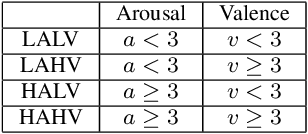Ahsan H. Khandoker
Variational decomposition autoencoding improves disentanglement of latent representations
Jan 11, 2026Abstract:Understanding the structure of complex, nonstationary, high-dimensional time-evolving signals is a central challenge in scientific data analysis. In many domains, such as speech and biomedical signal processing, the ability to learn disentangled and interpretable representations is critical for uncovering latent generative mechanisms. Traditional approaches to unsupervised representation learning, including variational autoencoders (VAEs), often struggle to capture the temporal and spectral diversity inherent in such data. Here we introduce variational decomposition autoencoding (VDA), a framework that extends VAEs by incorporating a strong structural bias toward signal decomposition. VDA is instantiated through variational decomposition autoencoders (DecVAEs), i.e., encoder-only neural networks that combine a signal decomposition model, a contrastive self-supervised task, and variational prior approximation to learn multiple latent subspaces aligned with time-frequency characteristics. We demonstrate the effectiveness of DecVAEs on simulated data and three publicly available scientific datasets, spanning speech recognition, dysarthria severity evaluation, and emotional speech classification. Our results demonstrate that DecVAEs surpass state-of-the-art VAE-based methods in terms of disentanglement quality, generalization across tasks, and the interpretability of latent encodings. These findings suggest that decomposition-aware architectures can serve as robust tools for extracting structured representations from dynamic signals, with potential applications in clinical diagnostics, human-computer interaction, and adaptive neurotechnologies.
Congenital Heart Disease Classification Using Phonocardiograms: A Scalable Screening Tool for Diverse Environments
Mar 28, 2025



Abstract:Congenital heart disease (CHD) is a critical condition that demands early detection, particularly in infancy and childhood. This study presents a deep learning model designed to detect CHD using phonocardiogram (PCG) signals, with a focus on its application in global health. We evaluated our model on several datasets, including the primary dataset from Bangladesh, achieving a high accuracy of 94.1%, sensitivity of 92.7%, specificity of 96.3%. The model also demonstrated robust performance on the public PhysioNet Challenge 2022 and 2016 datasets, underscoring its generalizability to diverse populations and data sources. We assessed the performance of the algorithm for single and multiple auscultation sites on the chest, demonstrating that the model maintains over 85% accuracy even when using a single location. Furthermore, our algorithm was able to achieve an accuracy of 80% on low-quality recordings, which cardiologists deemed non-diagnostic. This research suggests that an AI- driven digital stethoscope could serve as a cost-effective screening tool for CHD in resource-limited settings, enhancing clinical decision support and ultimately improving patient outcomes.
CochCeps-Augment: A Novel Self-Supervised Contrastive Learning Using Cochlear Cepstrum-based Masking for Speech Emotion Recognition
Feb 10, 2024



Abstract:Self-supervised learning (SSL) for automated speech recognition in terms of its emotional content, can be heavily degraded by the presence noise, affecting the efficiency of modeling the intricate temporal and spectral informative structures of speech. Recently, SSL on large speech datasets, as well as new audio-specific SSL proxy tasks, such as, temporal and frequency masking, have emerged, yielding superior performance compared to classic approaches drawn from the image augmentation domain. Our proposed contribution builds upon this successful paradigm by introducing CochCeps-Augment, a novel bio-inspired masking augmentation task for self-supervised contrastive learning of speech representations. Specifically, we utilize the newly introduced bio-inspired cochlear cepstrogram (CCGRAM) to derive noise robust representations of input speech, that are then further refined through a self-supervised learning scheme. The latter employs SimCLR to generate contrastive views of a CCGRAM through masking of its angle and quefrency dimensions. Our experimental approach and validations on the emotion recognition K-EmoCon benchmark dataset, for the first time via a speaker-independent approach, features unsupervised pre-training, linear probing and fine-tuning. Our results potentiate CochCeps-Augment to serve as a standard tool in speech emotion recognition analysis, showing the added value of incorporating bio-inspired masking as an informative augmentation task for self-supervision. Our code for implementing CochCeps-Augment will be made available at: https://github.com/GiannisZgs/CochCepsAugment.
 Add to Chrome
Add to Chrome Add to Firefox
Add to Firefox Add to Edge
Add to Edge